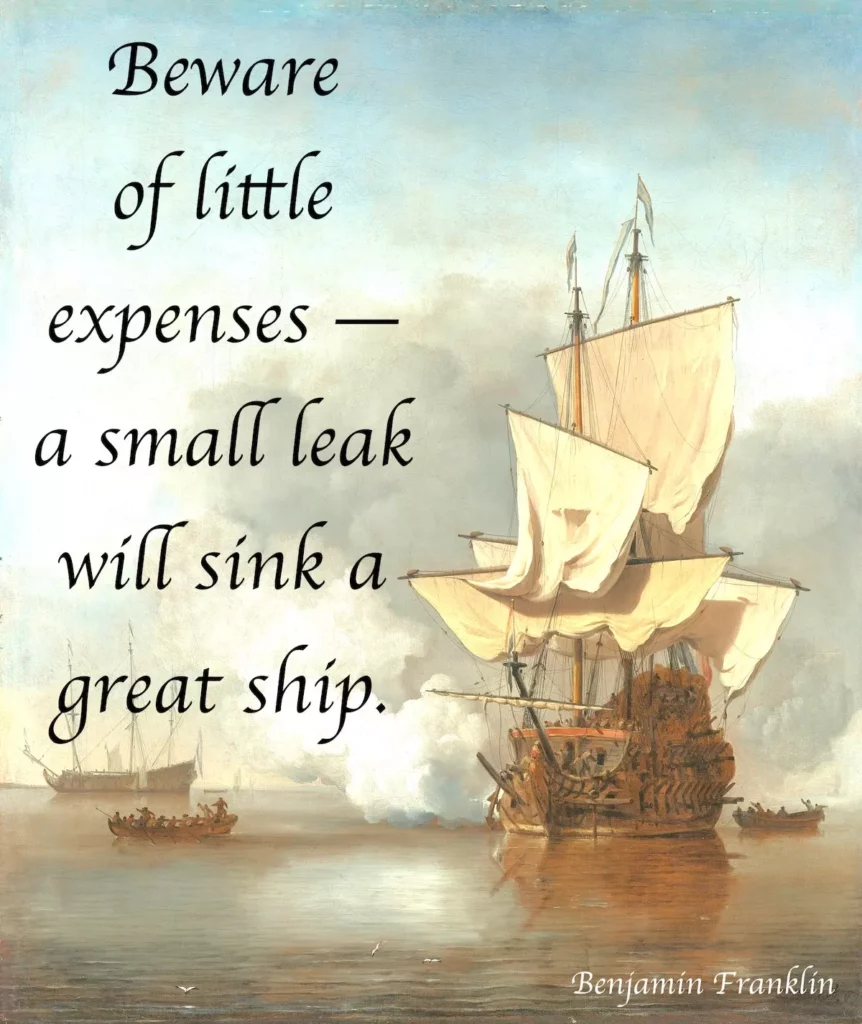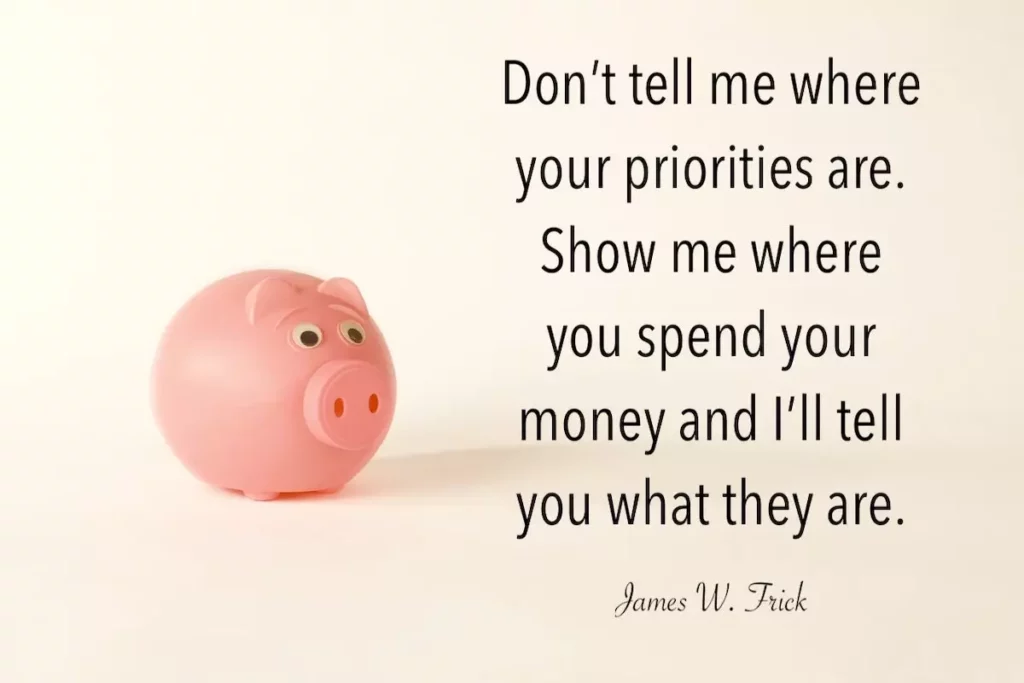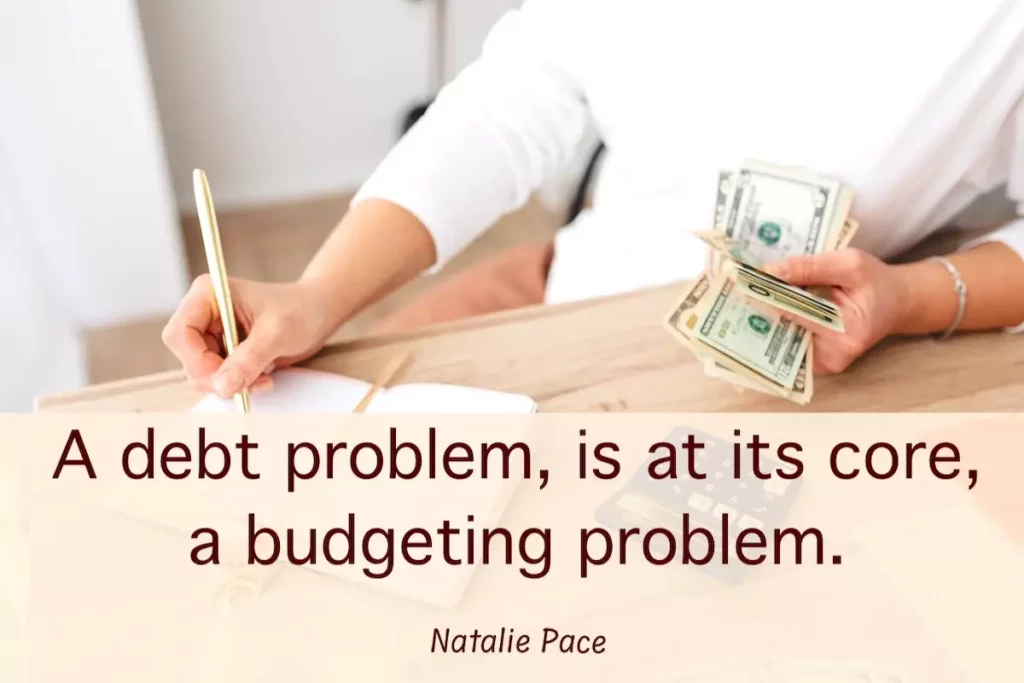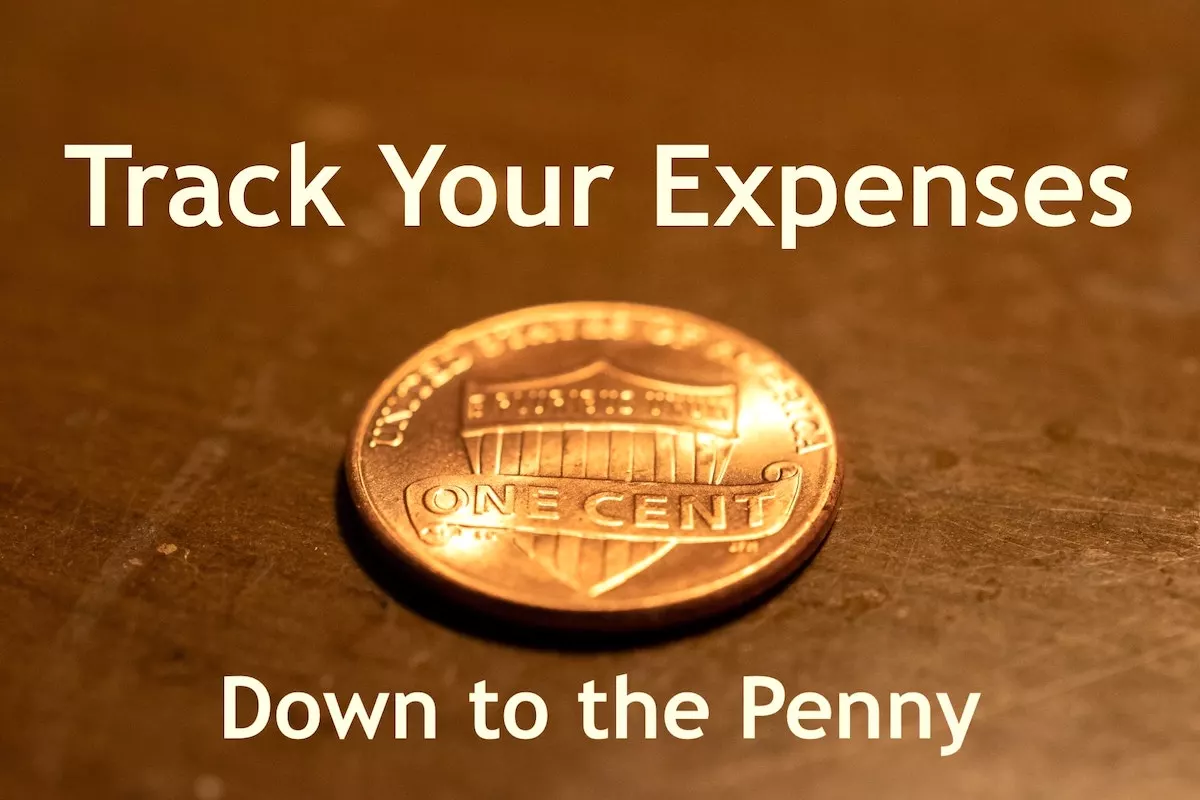There are only two things you can do to have more money. You can either decrease your expenses or increase your income through active or passive means. However, it’s pointless earning more if you keep inflating your lifestyle and spend all your money. You may feel richer because you have greater purchasing power, but you’re not building wealth. Ultimately, if you don’t save and make your money work for you, your financial future will remain uncertain.
The most basic step to money success is to manage your expenses well. This begins with tracking every cent that goes out of your pocket. Here’s why:
- Run Your Financial Life Like a Successful Business
- Know Where Your Money Goes
- Prioritise Your Spending
- Pay Off Your Debt
- Achieve Financial Success
1. Run Your Financial Life Like a Successful Business
Let’s start with the big picture. A recent conversation with my nephew about personal expenses was what led to this article. When I told him that I track mine down to the penny, he gaped at me like I had turned into a rat and said, “I don’t think I’ll do that though. Maybe for big purchases, but not something that costs 50 cents.”
In response, I asked him if the same can be said for a business. His expression changed and I knew I had got his attention.
As a former business owner, I say this with deep conviction — we should manage our finances the way a financial controller manages a company’s day-to-day financial operations.
Good expense tracking is a must for every business. The most obvious reason for doing so is to keep the taxman happy. You need to separate your personal expenses from those of your business and keep accurate records, which include receipts and invoices for every business expenditure. More importantly, the process of documenting your expenses tells you how profitable the business is. This helps you stay on top of your budget, identify areas of waste, and make informed decisions about where to allocate your resources.
Shouldn’t we exercise the same due diligence when it comes to our own money? In fact, we should be keeping a tighter control!
As a former business owner, I say this with deep conviction — we should manage our finances the way a financial controller manages a company’s day-to-day financial operations.
2. Know Where Your Money Goes
If you’re having a hard time trying to spend less and save more, maybe you need to take a step back and ask yourself if you have been doing it right. It’s time to start following the money trail like an investigator. TRACK EVERYTHING.
Put it this way. A blind man is no judge of colour. How can you cut back on spending if you have no idea what they are? You’re not capable of making a meaningful change until you have visibility. And you gain it by finding out where your hard-earned money goes.
You should pay attention to detail, no matter how minor. As Benjamin Franklin once said, “Beware of little expenses — a small leak will sink a great ship.” Seemingly insignificant expenses can quickly add up and sink your fortune!
If you need help with your expense tracking, check out our household expense categories in How to Cut Expenses to Retire Early: Getting Started.

3. Prioritise Your Spending
When you know exactly how much you’re spending each month, it’s easier to create a budget that will help you reach your financial goals. You can:
- prioritise your bills,
- separate your needs from your wants, and
- identify areas where you’re overspending.
Every figure says something about your spending habits and by analysing all of them, you can make adjustments to improve your financial health. For instance, do you often buy a bunch of random stuff when you go the supermarket? Do you really need three streaming services or a new pair of shoes every month?
At the end of the day, budgeting is about living within your means and spending money on things that are important to you. It’s about taking control of your money so as to build a better life.
Your budget is not set in stone and will likely evolve as your priorities change. For more ideas on budgeting, check out How to Cut Expenses to Retire Early: Realistic Budgeting.
Also check out: Cash Stuffing Budgeting System: No Thanks!
Our Expense Tracking Experience: Mr Wow and I have been tracking our expenses since we got married in 2001. Nevertheless, we weren’t as detailed in the early years and often missed out certain purchases. For instance, Mr Wow would buy something and forget to tell me to record it. Everything changed when we discovered the Financial Independence Retire Early (FIRE) movement in 2012. It gave us a very strong reason to track every single cent and motivated us to further reduce our outgoings. We eventually achieved FIRE in 2019 (three years ahead of schedule) and retired the following year in our early 40s. To be successful with money, both your income and expenses are important. Do not neglect either.

4. Pay Off Your Debt
It goes without saying that the lower your expenses, the more money you will have. This means you can allocate more funds towards debt repayment. Start by eliminating highly toxic ones such as high-interest credit card debts.
For many people, shouldering debts seems completely normal. It shouldn’t be the case. It makes sense to pay off or at least lower your debts because those monthly repayments are costing you more money than necessary and limiting your ability to save and invest for a better future. Paying off your debts also eases stress as you don’t have to worry about making payments and dealing with creditors.
Don’t underestimate the power of expense tracking and budgeting. They’re the essential steps in helping you break your debt cycle.
Mr Wow and I paid off our mortgage in 2018 and have been debt-free since. Find out how we did it in our three-part series, starting with 3 Financial Benefits of Downsizing to Be Mortgage-Free.

5. Achieve Financial Success
Tracking your expenses can seem like a tedious process. It also takes a lot of discipline to follow a budget religiously. That’s why many people fail at the beginning. But like most skills, once learnt, it becomes second nature. You just do it without needing to think much about it.
If that’s you, congrats! You definitely have what it takes to achieve great financial success! When there are no more leaks to mend, you can focus on building a better, stronger ship.
You can come up with a savings plan — yippee! Whether you’re trying to save for your kids’ education or plan for retirement, seeing where your money is going every month will ensure that you’re staying on track and making progress towards your financial goals.
You can finally invest — hooray! By investing regularly in stocks, bonds and so on, you can generate passive income and grow your money over time. Having savings not only allows you to invest, but also opens up other opportunities such as starting a business like what Mr Wow and I did. It sets you on the path of wealth building.

How We Track Our Expenses: To track your monthly outgoings, you can use a budgeting app (many have free versions) or a spreadsheet. As long as you can stay organised and are on top of your finances, it’s up to you, really. When Mr Wow and I first started tracking ours, I took the lead and recorded the figures on a spreadsheet (I’ve a spreadsheet for everything). Mr Wow has since taken over the task and switched us to an app called Money Pro. Being old-school, I didn’t like the app at first. Now, I really appreciate it as we can key in our purchases immediately instead of waiting till we get home. It does make things a whole lot easier, so you might want to give it a shot.
Some people struggle with their finances due to difficult life circumstances. For others, it largely boils down to one thing — poor management. Yet, many are unwilling to tighten their belts as they’re too accustomed to a certain lifestyle. I guess the thought of cutting back on things they deem normal or necessary to their lives is just too painful to bear.
I can’t tell you how to lead your life, but I can tell you that the “pain” is temporary while the benefits are permanent. If you’re constantly left with no money at the end of the month or don’t see yourself ever attaining your financial goals, start tracking your expenses to the penny. Taking this first step is key to really gaining control of your money. The best time to start was yesterday…
Related posts: The Compulsive Consumer vs the Austere Saver | 6 Types of Spending Triggers and How to Overcome Them | Cut Your Expenses: Quit Buying These 8 Useless Things | 5 Reasons for Vacation Overspending


